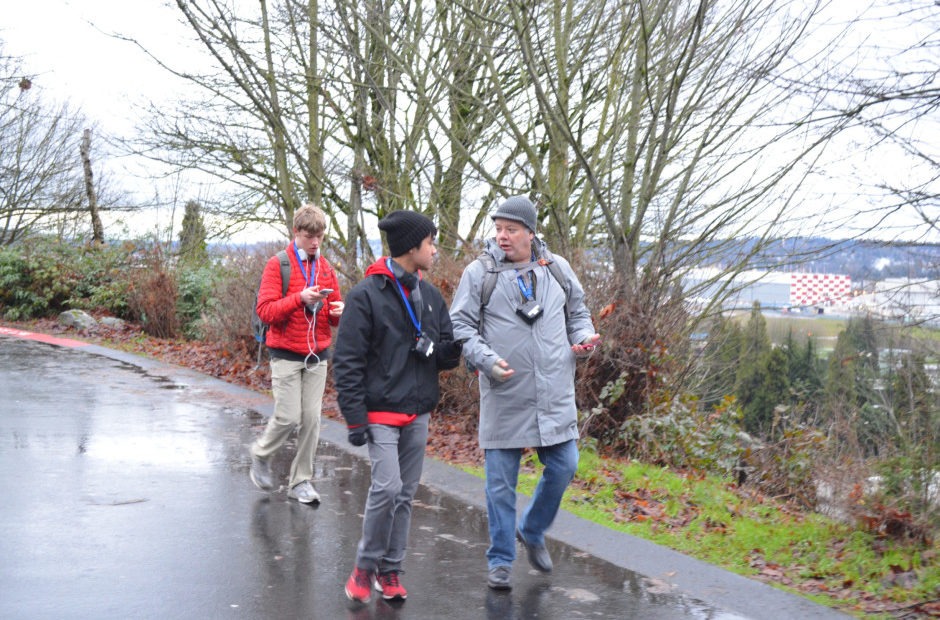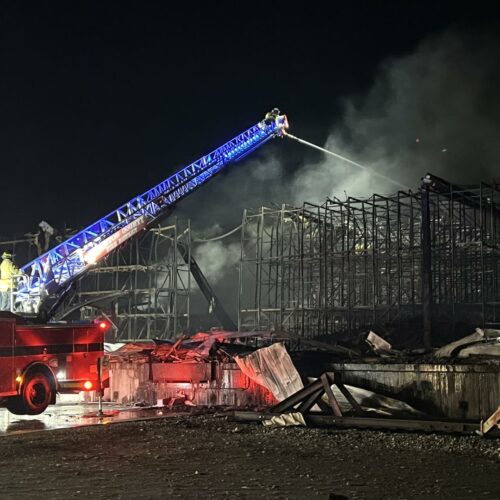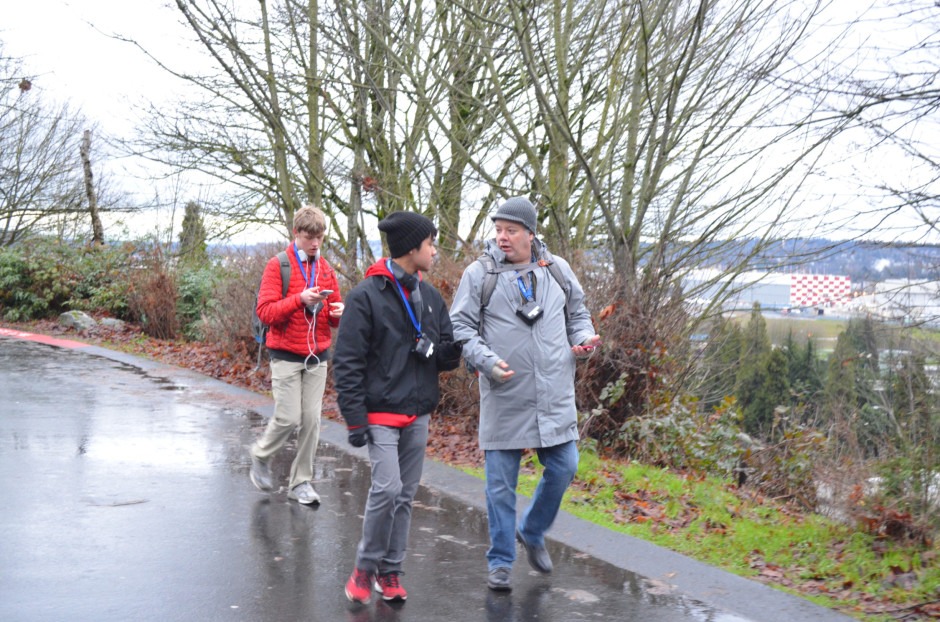
These South Seattle Teens Are Taking On The FAA To Fight Airport Noise Pollution
It’s 8 o’clock on a rainy, windy Saturday morning, and John Hoac and Brandon Teeny just got to school — Cleveland High in south Seattle. They’re here to measure air and noise pollution on campus.
“In south Seattle it’s much noisier” than in north Seattle, says Troy Abel, a professor of environmental policy at Western Washington University. He’s leading the two-week pollution study and providing the pollution monitors that Hoac and Teeny hang around their necks in preparation for their walk around campus. “These personal, handheld pollution monitors are … a way to help capture that human experience.”
One of the sources of noise pollution in south Seattle is airplanes. Experts say living near airports or under flight paths can hurt people’s health and productivity. That’s why residents of Seattle’s Beacon Hill neighborhood are demanding the federal government do more to address the problem of airplane noise.
María Batayola is a long-time resident of Beacon Hill. I met with her at the Centro de la Raza, the community center where she works helping organize the neighborhood around environmental justice issues. She says airplane noise is one of those: poor communities are exposed to more airplane noise than wealthier communities.

María Batayola works on environmental justice issue at the Centro de la Raza, in Seattle’s Beacon Hill neighborhood. Eilís O’Neill, KUOW/EarthFix
As we talked, Batayola kept getting interrupted by planes flying overhead.
“I get distracted by the airplane — I’m sorry,” she says after losing her train of thought once again.
Batayola says airplanes don’t just interrupt conversations. They also interrupt learning.
“I’m a mom,” she says. “You have airplanes that are interrupting attention, concentration. Teachers have to raise their voices, or sometimes you have to simplify what you’re saying because now you’re working on volume.”
And planes can also interrupt sleep and increase stress, and that can lead to other health problems.
“Increased stress is a risk factor for a lot of things, and certainly for having hypertension or high blood pressure, and that is a risk for heart attacks and other cardiovascular events,” says Jon Levy, a public health researcher at Boston University. He’s looked into the links between airplane noise and cardiovascular health.
Airplanes are actually quieter than they used to be, but the number of planes coming to the Seattle-Tacoma International Airport and other airports has been increasing, “so a broader array of communities are impacted,” says Democratic Congressman Adam Smith, whose district includes Beacon Hill. He’s a founding member of a House caucus that focuses on airplane noise.
The Federal Aviation Administration does have noise rules. It requires airports to calculate how much noise pollution flights might be causing. The ports then use those calculations to decide which neighborhoods qualify for funding to soundproof houses, apartment buildings, and schools.
Under FAA rules, Seattle’s Beacon Hill isn’t eligible.

A plane takes off on Monday, December 11, 2017, at Seattle-Tacoma International Airport. Megan Farmer/KUOW
“I think in every major airport across the United States we always have that same issue,” says Stan Shepherd, one of the noise mitigation managers at Sea-Tac. “The boundary has to be placed at a location” — that is, the boundary between who gets noise mitigation funds, and who doesn’t. “There’s always somebody on the other side of the road.”
The FAA is up for reauthorization this March. That happens once every ten years, and Smith says it’s the perfect opportunity to rewrite the rules on noise.
“The FAA needs to do more to help out communities impacted by airport noise,” Smith says. “They need to provide more money to help with mitigation than they currently do, so we’re working on legislation that could expand what the FAA could fund.”
In the meantime, residents of Beacon Hill are taking matters into their own hands, trying to prove that they’re exposed to unreasonable noise pollution.
That’s where the Cleveland High School students and their walk around campus come in.

After their walk, John Hoac, Brandon Teeny, and Troy Abel take stock of the pollution they mapped on their walk around campus. Eilís O’Neill, KUOW/EarthFix
Brandon Teeny is watching the data from his pollution monitor get mapped onto his cell phone. It’s color-coded so green is little to no noise pollution, yellow is a warning, orange is “a higher warning, and then, like, it’s too loud once it’s red,” Teeny explains. “And the average reading, like, of our walk so far has been an orange, and there’s been some red.”
Professor Abel hopes that, after two weeks of monitoring, the students will have results they can bring to the FAA.
“What this more human-scaled kind of science can help us do is confront and beat that institutional and scientific ignorance,” Abel says, “and start working on mitigation.”
Copyright 2018 Earthfix
Related Stories:

Whitman County reports first flu-related death of the season
Hospitalman Yenifer Gutierrez, left, and Hospitalman Brashea Ojeda treat COVID patients in the ICU Aboard USNS Comfort in April of 2020. Influenza deaths surpassed COVID-19 deaths for this first time

Washington state reports 7-year peak in influenza-related deaths
The Washington state Department of Health reported on March 20th that influenza activity reached its highest levels in seven years, with the most flu-related deaths since the 2017-2018 flu season.

Finley residents hire attorneys to investigate cold storage warehouse fire
Fire crews spray water on rubble at the Lineage Logistics fire in Finley, Wash. The fire started on April 21. (Credit: Benton County Fire District #1) Listen (Runtime 1:06) Read















